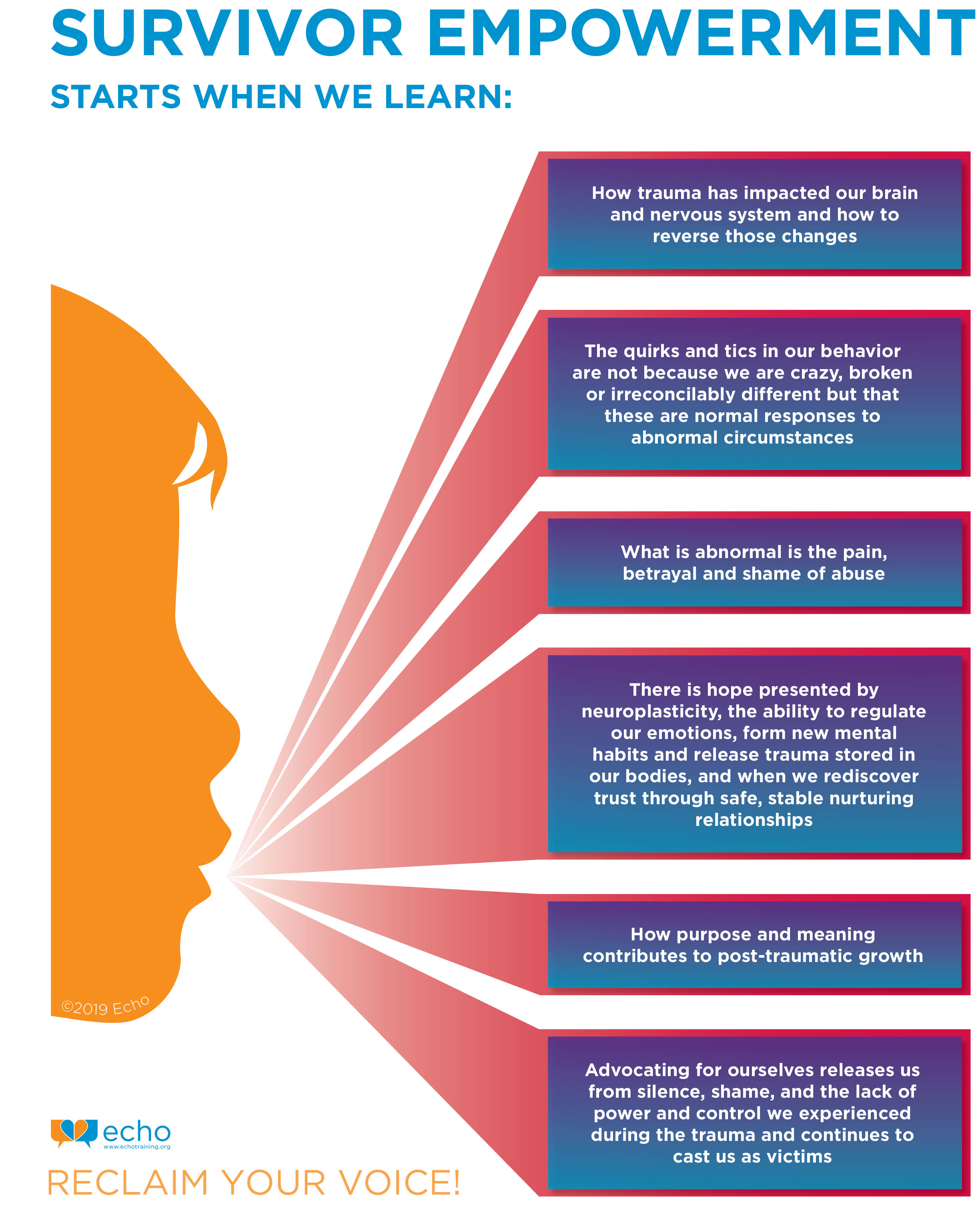Trauma-informed care is the new gold standard. For the last several years, Echo has been providing professional development in trauma-informed care but we’re beginning to notice a worrying aspect of the new push to train staff and transform systems. Some human service professionals are seeing ‘trauma-informed care’ as another skill to add to their resume or a box to check off on a grant proposal. But if the information stays with the professionals and is not used to empower survivors, then haven’t we missed the point?
This has led us to conclude that as important as it is for service professionals to learn about trauma and resilience it is even more important that this information gets directly into the hands of survivors.
SURVIVOR EMPOWERMENT starts when we learn:
- How trauma has impacted our brain and nervous system and how to reverse those changes
- The quirks and tics in our behavior are not because we are crazy, broken or irreconcilably different but that these are normal responses to abnormal circumstances
- What is abnormal is the pain, betrayal and shame of abuse
- There is hope presented by neuroplasticity, the ability to regulate our emotions, form new mental habits and release trauma stored in our bodies, and when we rediscover trust through safe, stable nurturing relationships
- How purpose and meaning contributes to post-traumatic growth
- Advocating for ourselves releases us from silence, shame, and the lack of power and control we experienced during the trauma and continues to cast us as victims
The irony is that many service professionals are survivors themselves.
Once we remove the ‘us’ and ‘them’ of trauma survivor vs. service professional we can talk more honestly about how ubiquitous trauma is in the human experience, how it shapes our behavior and our institutions, our whole society.
At Echo, our focus is on empowering survivors.
After all, if it is not putting survivors’ interests first then
what is the point of being trauma-informed?
“No one can ‘treat’ a war, or abuse, rape, molestation, or any other horrendous event, for that matter; what has happened cannot be undone. But what can be dealt with are the imprints of the trauma on body, mind, and soul: the crushing sensations in your chest that you label as anxiety or depression; the fear of losing control; always being on alert for danger or rejection; the self-loathing; the nightmares and flashbacks; the fog that keeps you from staying on task and from engaging fully in what you are doing; being unable to fully open your heart to another human being.
Neuroscience research shows that the only way we can change the way we feel is by becoming aware of our inner experience and learning to befriend what is going on inside ourselves.”

Comments (0)